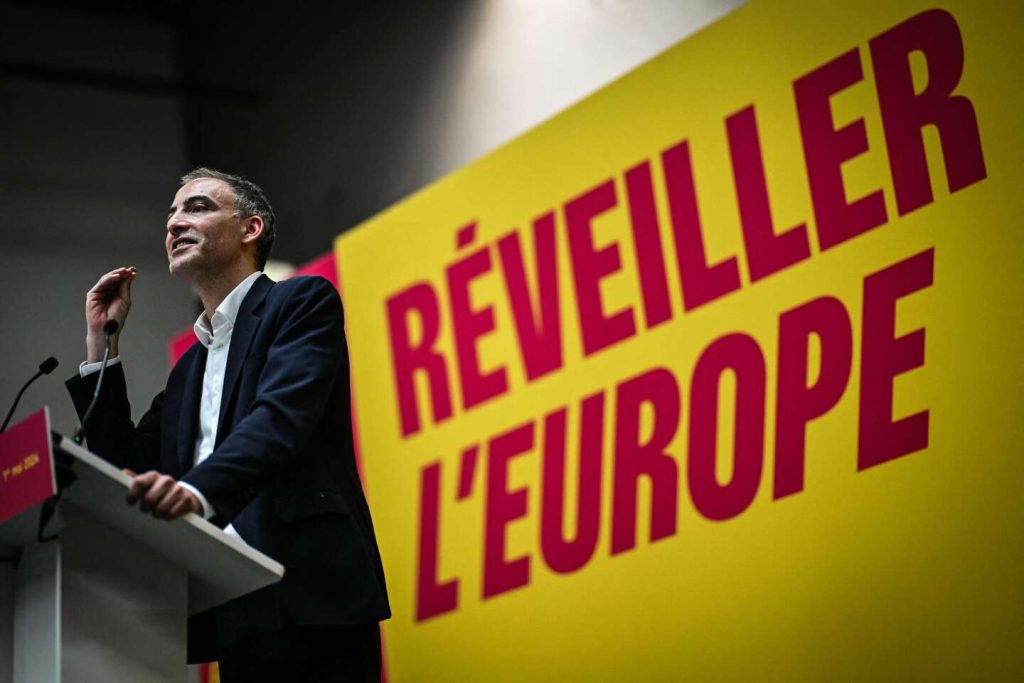Raphaël Glucksmann, the candidate for the Socialist Party (PS) and his party Place Publique in the European elections, denounced the “deleterious atmosphere” in the public debate following his eviction from the May 1st demonstration in Saint-Etienne. Glucksmann expressed concern about the violence of words escalating into actions and called for a return to reasoned and respectful political debate. He accused Jean-Luc Mélenchon and his supporters of orchestrating a violent and misleading campaign against him, leading to the incident in Saint-Etienne. Glucksmann also pointed fingers at Communist and “insubordinate” activists for preventing him from participating in the May 1st rally.
Despite denials from insubordinate leaders, evidence has emerged linking the actions against Glucksmann to Communist and insubordinate groups. Glucksmann refused to apologize for the incident, stating that those who resort to violence in the public debate do not intimidate him. He emphasized that his campaign focuses on issues such as European defense and ecological transition, positioning himself as a leading figure in the left-wing camp. Glucksmann attributed the actions against him to the rising momentum of his campaign and his increasing popularity in the polls, challenging Mélenchon’s dominance in the left.
Glucksmann received support from left-wing figures such as the National Secretary of the PCF, Fabien Roussel, who criticized the exclusion of Glucksmann from the May 1st mobilization in Saint-Etienne. Other leaders condemned the extreme conflict and anger that characterized the incident, highlighting the need for respectful and constructive political discourse. Despite the tensions and opposition from some leftist groups, Glucksmann reiterated his commitment to standing against political violence and promoting a more inclusive and tolerant approach to politics.
As the European elections approach, Glucksmann’s campaign continues to gain momentum, positioning him as a strong contender in the left-wing camp and challenging the dominance of established figures like Mélenchon. His focus on key European issues such as defense and climate change resonates with voters looking for a progressive and forward-thinking agenda. Despite facing resistance and hostility from some quarters, Glucksmann remains determined to promote a message of unity, respect, and civility in the political arena.
The incident in Saint-Etienne and the subsequent fallout underscore the polarized and contentious nature of French politics, with clashes between different factions representing diverse ideological positions. Glucksmann’s call for a return to rational debate and respectful engagement highlights the need for a more constructive and inclusive political discourse in the face of rising tensions and confrontations. The support and opposition he receives from various political figures reflect the deep divisions and rivalries within the French left, as different factions vie for influence and dominance in the upcoming elections.














